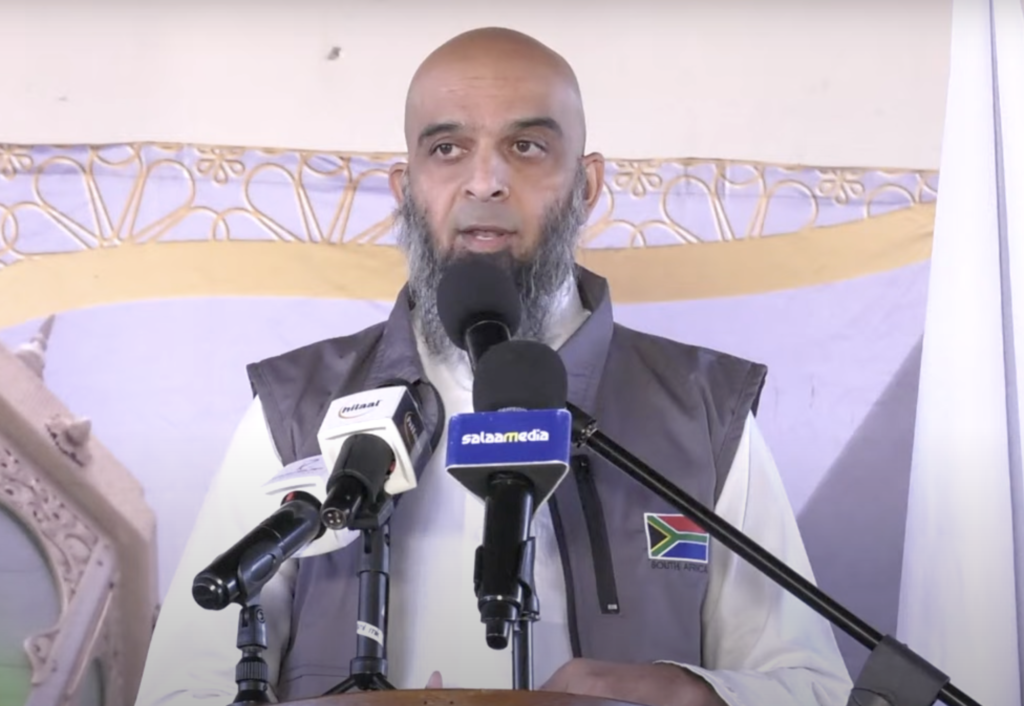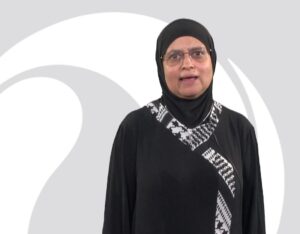
By Nabeelah Shaikh
The Saudi Ministry of Hajj has agreed to pay back more than R14.5 million in ex-gratia payments to South Africans who embarked on pilgrimage in 2023 over poor service delivery.
The announcement was made during a recent press conference held by the South African Hajj and Umrah Council (Sahuc) at the Suleiman Nana Memorial Centre in Crosby, Johannesburg.
The press conference was attended by Sahuc board members, Saudi Embassy representative Sultan Al Harbi, and the head of Sahuc’s Hajj mission, Ismail Kholvadia.
These representatives highlighted the challenges experienced by pilgrims and the process that went into obtaining the refund.
The unprecedented announcement came as a great relief to hujjaj, who were left disappointed after receiving bad service during the 2023 Hajj season, which included food and water shortages. The total amount to be reimbursed to South Africans is 3,049,041.67 in Saudi Riyals. This money is being held in Saudi Arabia and will soon be reimbursed to pilgrims.
Moaaz Casoo, President of Sahuc, said that South African pilgrims endured many hardships during the five days of the Hajj in 2023, especially those in camps A and D.
He said some of the concerns raised by the South African hujjaj were that there was insufficient security at their camps in Arafah and Mina.
“There were hajees from other countries entering their camps and taking some of their drinks and food. Security was an issue. The quality of the food provided on certain days to our hujjaj was not acceptable. Sofa beds were provided in both Mina and Arafah and those caused major issues in terms of space constraints for our hajees. It made it very difficult for our hajees to perform their salah,” said Casoo.
He said hajees also had issues in Arafah with regards to the aircon systems not working, as well as space issues there.
“We had no water in our camps in Mina on day one, for two hours. Service delivery was not provided to our hajees. The ablution facilities were below par, and there were no provisions for those in wheelchairs and those with disabilities,” said Casoo.
Casoo said Sahuc, along with Hajj officials in Saudi Arabia, attended to the hajees’ concerns during the five days of the Hajj. Although they had tried their utmost best to remedy the situation, unfortunately, this could not be achieved as they were in the midst of the five days of the Hajj.
“During the five days of Hajj, Sahuc and the representatives from the travel operators whose hajees were affected held a meeting in Mina. In this meeting, we discussed their complaints and committed to the hajees that we would address these issues,” said Casoo. After months of meetings with officials in Saudi Arabia, Sahuc says they have managed to reach an agreement that monies be reimbursed to South African hujjaj.
“Sahuc had raised all these concerns with the Ministry of Hajj and Umrah. Each year, we ask hajees to submit compliments and complaints. Last year, a majority of the complaints were against the service provider. This process has taken very long. We had to engage with the role-players in Saudi Arabia,” said Casoo.
He said last year was the first time where a service provider failed to deliver on what was agreed on contractually.
“As a result the service provider, and the Saudi Ministry of Hajj have agreed on the ex gratia payment to 3500 hajees. One needs to remember that last year was the first year post-COVID where the numbers were back to pre-COVID in terms of quota allocations for all countries,” said Casoo.
Casoo said that because the cost of Hajj is exorbitant due to the exchange rate and a weaker rand from South Africa, Sahuc had to make sure that they fought for South African pilgrims wherever possible.
Former Sahuc President, Shaheen Essop, said after COVID-19 privatisation has crept into the service industry of Hajj. “This is all in line with the 2030 vision of the Kingdom of Saudi Arabia. Privatisation brings about a choice in service providers and 2023 was the first year in which that choice was presented to Sahuc and other Hajj entities around the world. We stuck with the entity that we had known over the past 15 years insofar as the service delivery was concerned, and unfortunately, because of privatisation, because of changes, and because of competition, they fell short on service,” said Essop.












